HVAC Explained
Helping Homeowners Save Time
- We provide fixed install virtual heating and air conditioning quotes.
- We eliminate the need to spend hours coordinating and meeting with contractors.


What is an HVAC System?
HVAC stands for Heating, Ventilation, and Air Conditioning – it is a technology designed to keep indoor spaces comfortable by regulating the temperature, humidity, and air quality.
A typical Ducted Split System is a type of HVAC setup where an outdoor unit (condenser) is connected to an indoor unit via ductwork. The indoor unit (furnace/air handler), typically located in a basement, attic or utility space distributes heated or cooled air through the ducts to various rooms. When considering an HVAC system installation, this setup is a popular choice for homeowners seeking efficient, whole-home climate control.
Think of an HVAC system like the body’s respiratory system but for your home. Just as your lungs take in fresh air and expel unwanted air to keep your body comfortable and healthy, an HVAC system installation brings in clean air, regulates temperature, and keeps the environment inside your home comfortable and safe, no matter what the weather is like outside.
Whatever is keeping your home at a comfortable temperature is your HVAC system, whether that’s central air conditioning, a heat pump, a gas furnace, or something else entirely.
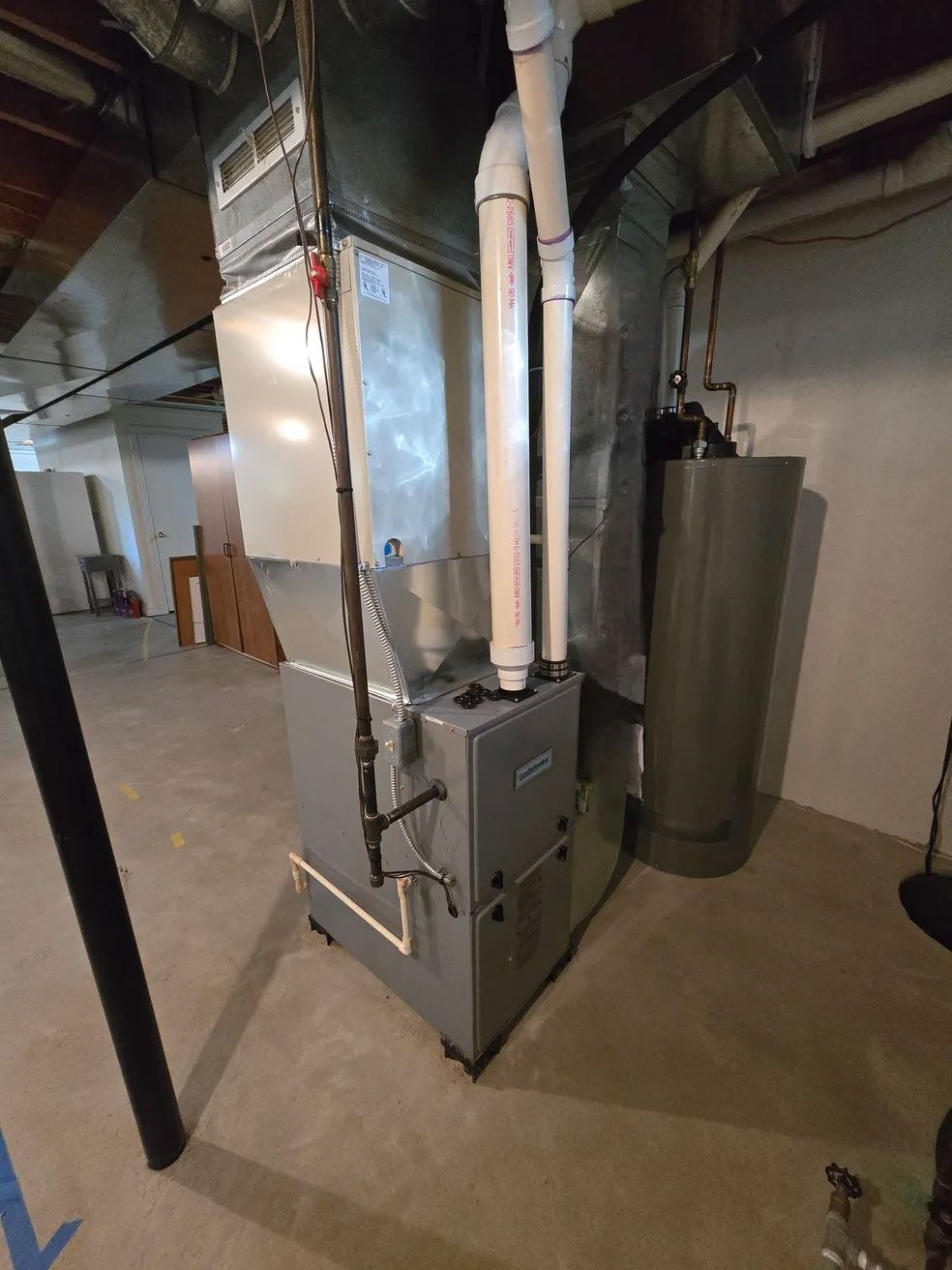

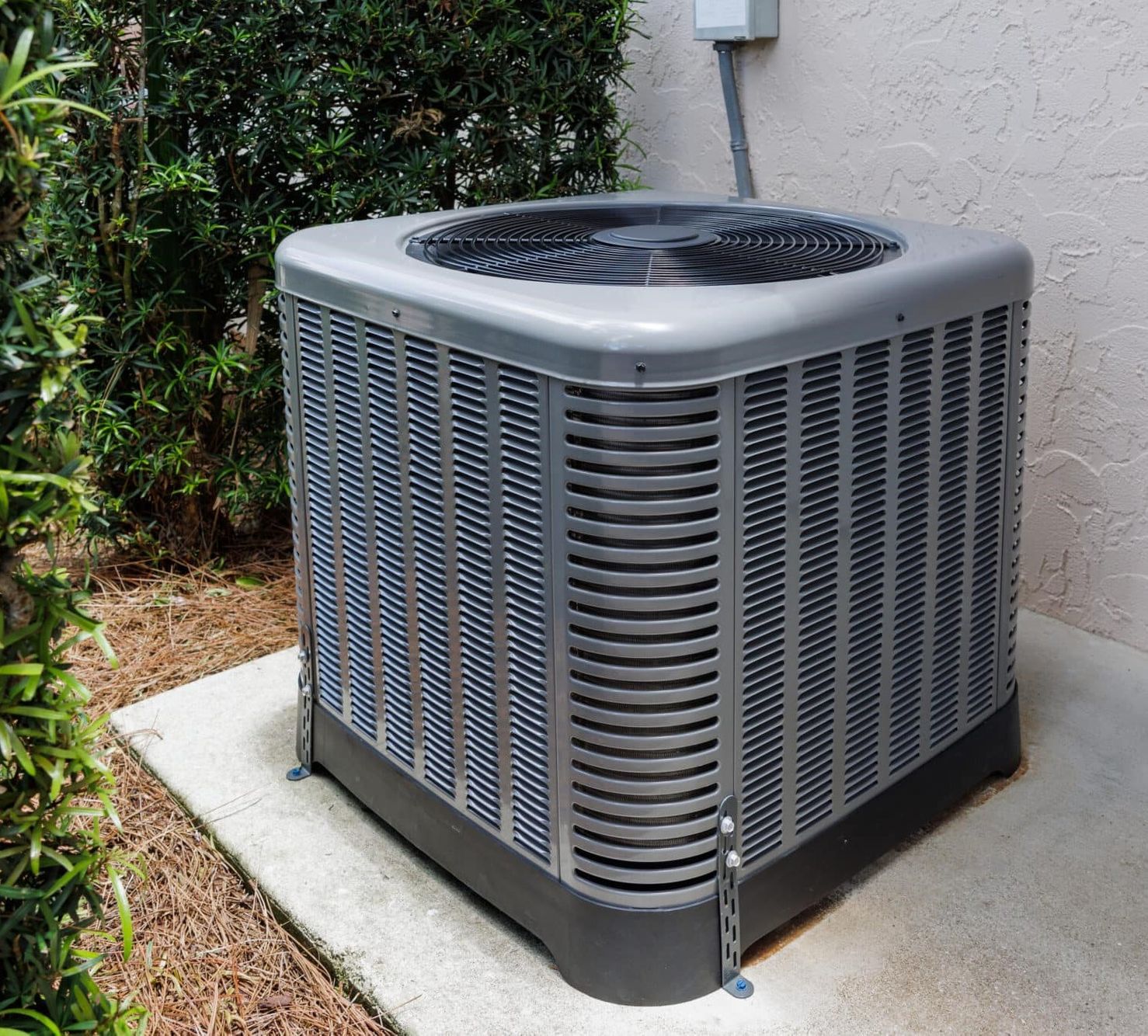
your home's HVAC components.
- Heating. This part of the system keeps your home warm during the colder months. It can include furnaces or heat pumps that generate heat.
- Air conditioning. This part cools down your home when it’s hot outside. It works by removing heat and moisture from the indoor air to lower the temperature
- Supply ducts. These ducts carry conditioned air from the HVAC unit to different areas of your home, delivering heated or cooled air to maintain a comfortable indoor temperature
- Return ducts. Return ducts bring air from the home back to the HVAC unit to be reconditioned. This air may contain dust, allergens, and other particles, which are filtered out before the air is recirculated.
- Filtration. Essential for maintaining indoor air quality, promoting occupant health and comfort, and ensuring the efficient operation of HVAC systems. It's important to choose the right filters and perform regular maintenance to achieve optimal performance.
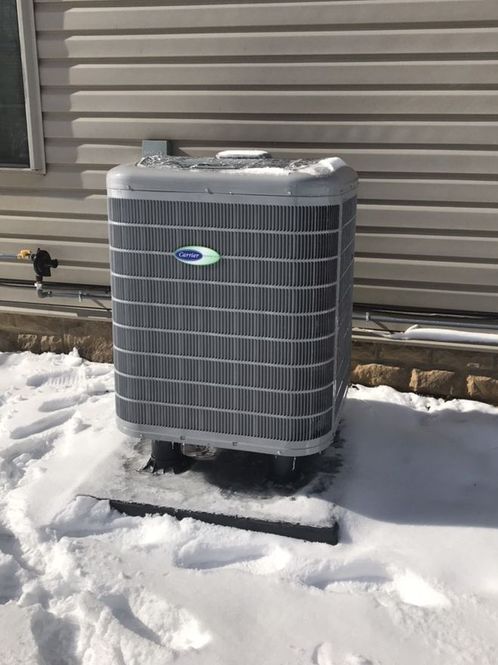
Dual Fuel HVAC system
Combining the capabilities of a heat pump and furnace, a Dual Fuel HVAC system creates a harmonious blend of efficiency and comfort within your home. Upgrade to a dual fuel HVAC system for enhanced efficiency and potential tax credits, providing up to a $2600 saving opportunity available until 2032. Invest wisely in your home's comfort while benefiting from tax savings.
Benefits of a Dual Fuel System. A dual-fuel HVAC system, where a heat pump and furnace unite, is the pinnacle of heating efficiency and comfort. The heat pump reigns supreme during milder weather, switching seamlessly to the furnace in colder conditions for optimal warmth. It's a dynamic system that balances energy usage and ensures year-round comfort. With a professional HVAC system installation, you can maximize the benefits of this advanced setup. Plus, it's also a smart financial choice with potential tax credits because it reduces your environmental impact!
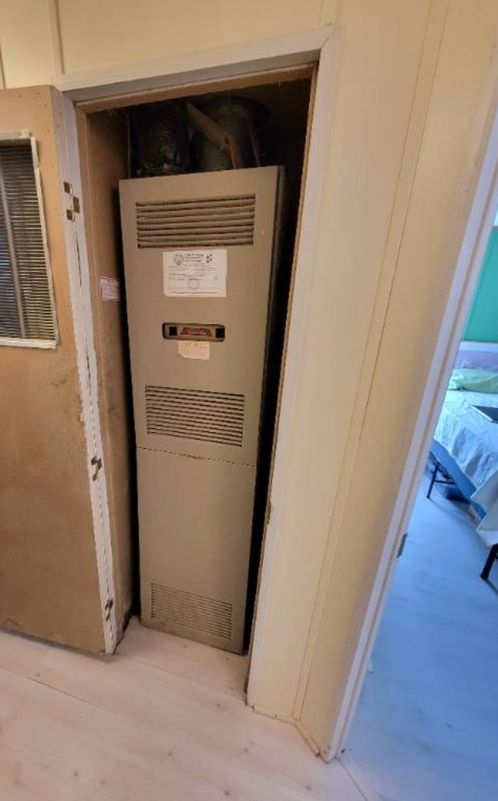
Mobile Home Furnace Installation
At VirHaac, we specialize in mobile home furnace installation, offering efficient, safe, and reliable heating solutions tailored to mobile and manufactured homes. With over 30 years of experience, we ensure seamless installations designed for your home’s unique needs.
Expert Mobile Home Furnace Installers: From the base of the closet and up through the roof with new venting, you can rely on our expert installation from top to bottom

EFFICIENCY = AFUE % & SEER RATING
AFUE (Annual Fuel Utilization Efficiency) measures how efficiently a furnace converts fuel into heat over a heating season. For instance, an AFUE of 90% means 90% of fuel becomes heat, while 10% is lost. Gas furnaces in the US typically have a minimum AFUE of 80%, but high-efficiency models can reach 90% or higher. It's commonly used to compare heating system efficiency.
SEER (Seasonal Energy Efficiency Ratio) measures cooling efficiency for air conditioners and heat pumps over a whole cooling season. Ratings range from 13.5 to over 25, with higher SEER numbers indicating better efficiency. Higher SEER means less energy consumed for the same cooling output, leading to lower operating costs and environmental impact.
Both AFUE and SEER are vital for choosing heating and cooling equipment, impacting energy use, costs, and the environment. While higher ratings usually mean better efficiency, factors like system size, installation, and maintenance also influence performance.
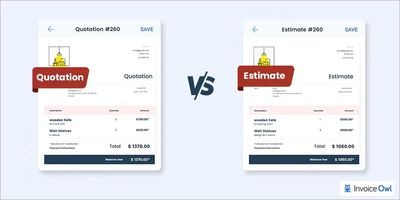
Quote vs Estimate
- HVAC Quote: This is like a precise bill. It gives you the exact cost for the job. Once you agree to it, the price doesn't change.
- HVAC Estimate: Think of this as a rough guess. It gives you an idea of what the job might cost, but the final price could be different. It's not as definite as a quote.
We only provide fixed price, installed quotes. Our quotes include all the equipment, labor, taxes, permits, cleaning up and hauling away the old equipment.
No surprises here! We provide an upfront quote. Unless you request a change, our quote stands firm.
Control Your Comfort with HVAC System Installation
From virtual quotes to professional installation and ongoing support, VirHaac has you covered every step of the way.
